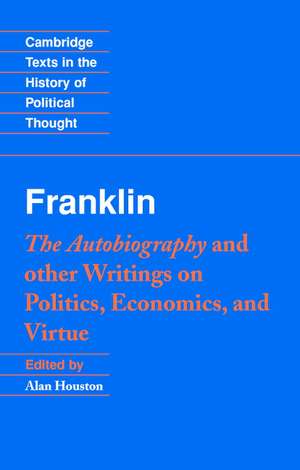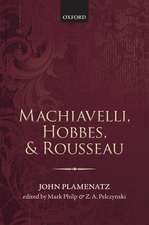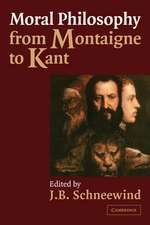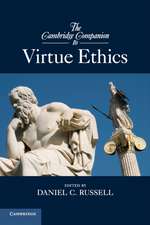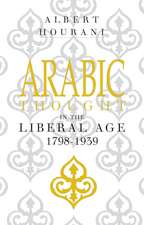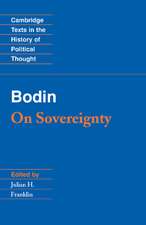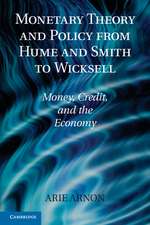Franklin: The Autobiography and Other Writings on Politics, Economics, and Virtue: Cambridge Texts in the History of Political Thought
Autor Benjamin Franklin Editat de Alan Houstonen Limba Engleză Paperback – 20 oct 2004
| Toate formatele și edițiile | Preț | Express |
|---|---|---|
| Paperback (1) | 328.40 lei 6-8 săpt. | |
| Cambridge University Press – 20 oct 2004 | 328.40 lei 6-8 săpt. | |
| Hardback (1) | 688.40 lei 6-8 săpt. | |
| Cambridge University Press – 20 oct 2004 | 688.40 lei 6-8 săpt. |
Din seria Cambridge Texts in the History of Political Thought
-
 Preț: 199.24 lei
Preț: 199.24 lei -
 Preț: 288.34 lei
Preț: 288.34 lei -
 Preț: 119.68 lei
Preț: 119.68 lei -
 Preț: 199.24 lei
Preț: 199.24 lei -
 Preț: 123.27 lei
Preț: 123.27 lei -
 Preț: 178.87 lei
Preț: 178.87 lei -
 Preț: 156.89 lei
Preț: 156.89 lei -
 Preț: 140.39 lei
Preț: 140.39 lei -
 Preț: 128.84 lei
Preț: 128.84 lei -
 Preț: 121.24 lei
Preț: 121.24 lei -
 Preț: 143.73 lei
Preț: 143.73 lei -
 Preț: 177.82 lei
Preț: 177.82 lei -
 Preț: 198.94 lei
Preț: 198.94 lei -
 Preț: 101.03 lei
Preț: 101.03 lei -
 Preț: 205.41 lei
Preț: 205.41 lei -
 Preț: 122.45 lei
Preț: 122.45 lei -
 Preț: 209.16 lei
Preț: 209.16 lei -
 Preț: 132.55 lei
Preț: 132.55 lei -
 Preț: 207.73 lei
Preț: 207.73 lei -
 Preț: 130.10 lei
Preț: 130.10 lei -
 Preț: 183.45 lei
Preț: 183.45 lei -
 Preț: 296.00 lei
Preț: 296.00 lei -
 Preț: 193.53 lei
Preț: 193.53 lei -
 Preț: 226.68 lei
Preț: 226.68 lei - 8%
 Preț: 467.18 lei
Preț: 467.18 lei -
 Preț: 189.91 lei
Preț: 189.91 lei -
 Preț: 339.90 lei
Preț: 339.90 lei -
 Preț: 161.79 lei
Preț: 161.79 lei -
 Preț: 192.75 lei
Preț: 192.75 lei -
 Preț: 176.62 lei
Preț: 176.62 lei -
 Preț: 116.10 lei
Preț: 116.10 lei -
 Preț: 208.69 lei
Preț: 208.69 lei -
 Preț: 188.94 lei
Preț: 188.94 lei -
 Preț: 124.33 lei
Preț: 124.33 lei -
 Preț: 178.53 lei
Preț: 178.53 lei -
 Preț: 135.71 lei
Preț: 135.71 lei - 14%
 Preț: 694.86 lei
Preț: 694.86 lei - 14%
 Preț: 732.13 lei
Preț: 732.13 lei - 11%
 Preț: 686.44 lei
Preț: 686.44 lei - 14%
 Preț: 767.93 lei
Preț: 767.93 lei - 14%
 Preț: 681.68 lei
Preț: 681.68 lei -
 Preț: 292.69 lei
Preț: 292.69 lei - 11%
 Preț: 664.20 lei
Preț: 664.20 lei - 14%
 Preț: 688.40 lei
Preț: 688.40 lei
Preț: 328.40 lei
Nou
Puncte Express: 493
Preț estimativ în valută:
62.86€ • 68.30$ • 52.84£
62.86€ • 68.30$ • 52.84£
Carte tipărită la comandă
Livrare economică 21 aprilie-05 mai
Preluare comenzi: 021 569.72.76
Specificații
ISBN-13: 9780521542654
ISBN-10: 0521542650
Pagini: 442
Dimensiuni: 139 x 216 x 30 mm
Greutate: 0.52 kg
Editura: Cambridge University Press
Colecția Cambridge University Press
Seria Cambridge Texts in the History of Political Thought
Locul publicării:Cambridge, United Kingdom
ISBN-10: 0521542650
Pagini: 442
Dimensiuni: 139 x 216 x 30 mm
Greutate: 0.52 kg
Editura: Cambridge University Press
Colecția Cambridge University Press
Seria Cambridge Texts in the History of Political Thought
Locul publicării:Cambridge, United Kingdom
Cuprins
Acknowledgements; Introduction; Chronology; Bibliographical note; Biographical guide; A note on the texts; 1. The autobiography - Part One, Part Two, Part Three, Part Four; 2. Plan of conduct (1726); 3. The nature and necessity of a paper currency (1729); 4. Apology for printers (1731); 5. Rules for a club formerly established at Philadelphia (1732); 6. Dialogue between two Presbyterians (1735); 7. Letter to Josiah and Abiah Franklin (1738); 8. Proposal for promoting useful knowledge (1743); 9. Speech of Miss Polly Baker (1747); 10. Plain truth (1747); 11. Form of the association and remarks (1747); 12. Advice to a young tradesman, written by an old one (1748); 13. Proposals relating to the education of youth in Pennsylvania; 14. Observations concerning the increase of mankind (1751); 15. Letter to James Parker (1751); 16. Rattlesnakes for Felons (1751); 17. Letter to Peter Collinson (1753); 18. Letter to Peter Collinson (1753); 19. Join or die (1754); 20. Reasons and motives for the Albany Plan of Union (1754); 21. Letters to Governor Shirley (1754) with a preface of 1766; 22. Preface to poor Richard improved (1757); 23. Letter to ________ (1757); 24. Letter to Lord Kames (1760); 25. On the price of corn, and the management of the poor (1766); 26. Letter to Lord Kames (1767); 27. Causes of the American discontents before 1768 (1768); 28. The Somersett case and the slave trade (1772); 29. Rules by which a Great Empire may be reduced to a small one (1773); 30. An edict by the King of Prussia (1773); 31. On a proposed act to prevent immigration (1773); 32. Articles of Confederation and Perpetual Union (1775); 33. Morals of Chess (1779); 34. The Whistle (1779); 35. Letter to Joseph Priestley (1780); 36. Letter to Joseph Priestley (1782); 37. Letter to Richard Price (1782); 38. Letter to Robert Morris (1783); 39. Remarks concerning the savages of North America (1784); 40. Letter to Sarah Franklin Bache (1784); 41. Information to those who would remove to America (1784); 42. Letter to Benjamin Vaughan (1784); 43. At the Constitutional Convention (1787); 44. Queries and remarks (1789); 45. On the Slave Trade (1790); Index.
Notă biografică
American statesman, philosopher, and writer, was one of a numerous family. His father was a soap-boiler at Boston, where Franklin was born. He was apprenticed at the age of 13 to his brother, a printer, who treated him harshly. After various changes, during which he lived in New York, London, and Philadelphia, he at last succeeded in founding a successful business as a printer. He also started a newspaper, The Gazette, which was highly popular, Poor Richard's Almanac, and the Busybody Papers, in imitation of the Spectator. After holding various minor appointments, he was made deputy Postmaster-General for the American Colonies. In 1757 he went to London on some public business in which he was so successful that various colonies appointed him their English agent. In the midst of his varied avocations he found time for scientific investigation, especially with regard to electricity. For these he became known over the civilised world, and was loaded with honours. In 1762 he returned to America, and took a prominent part in the controversies which led to the Revolutionary War and the independence of the Colonies. In 1776 he was U.S. Minister to France, and in 1782 was a signatory of the treaty which confirmed the independence of the States. He returned home in 1785, and, after holding various political offices, retired in 1788, and died in 1790. His autobiography is his chief contribution to literature, and is of the highest interest.
[From A Short Biographical Dictionary of English Literature by John W. Cousin, 1910]
Descriere
A full and representative selection of Benjamin Franklin's most important political writings.
